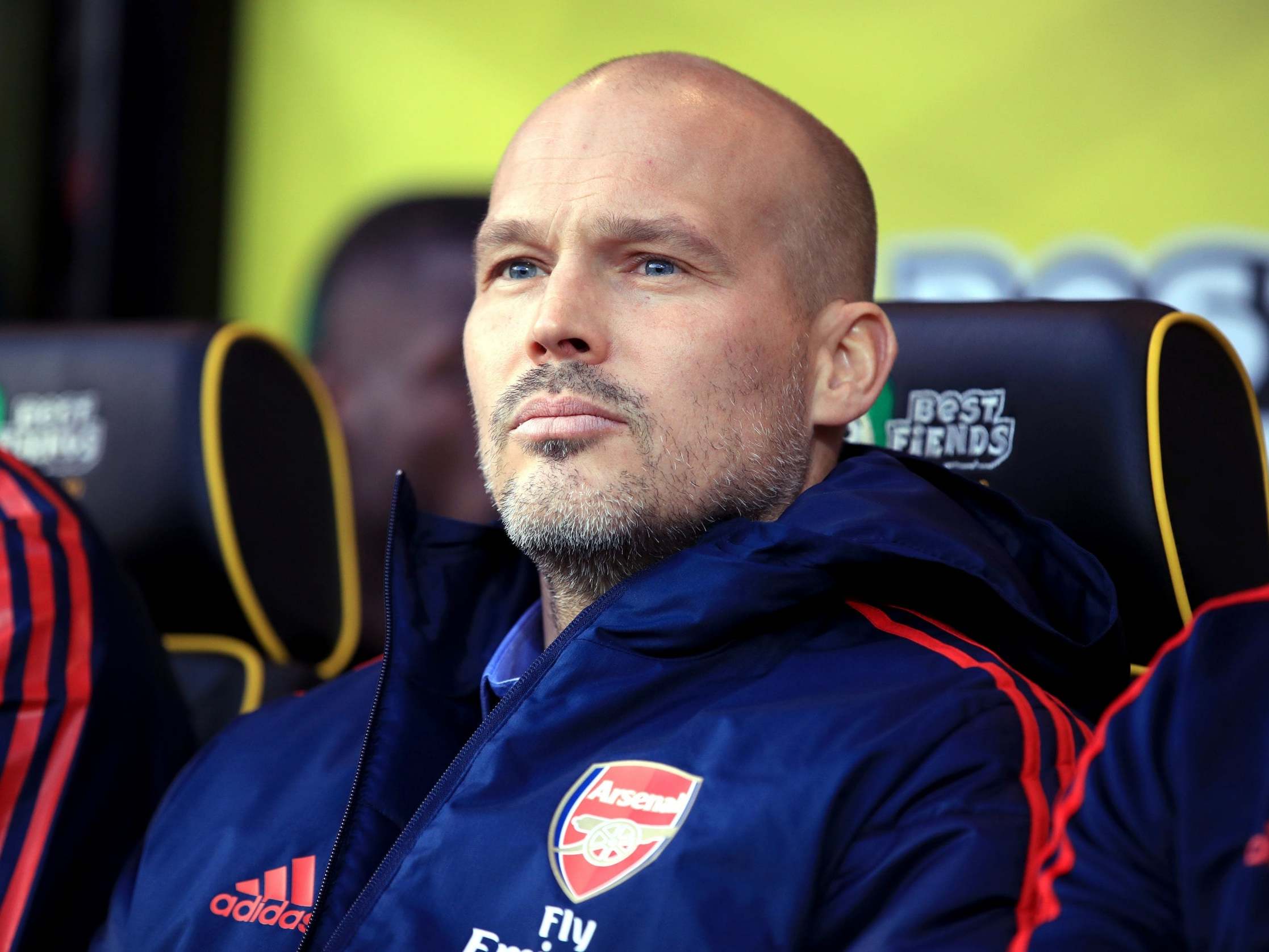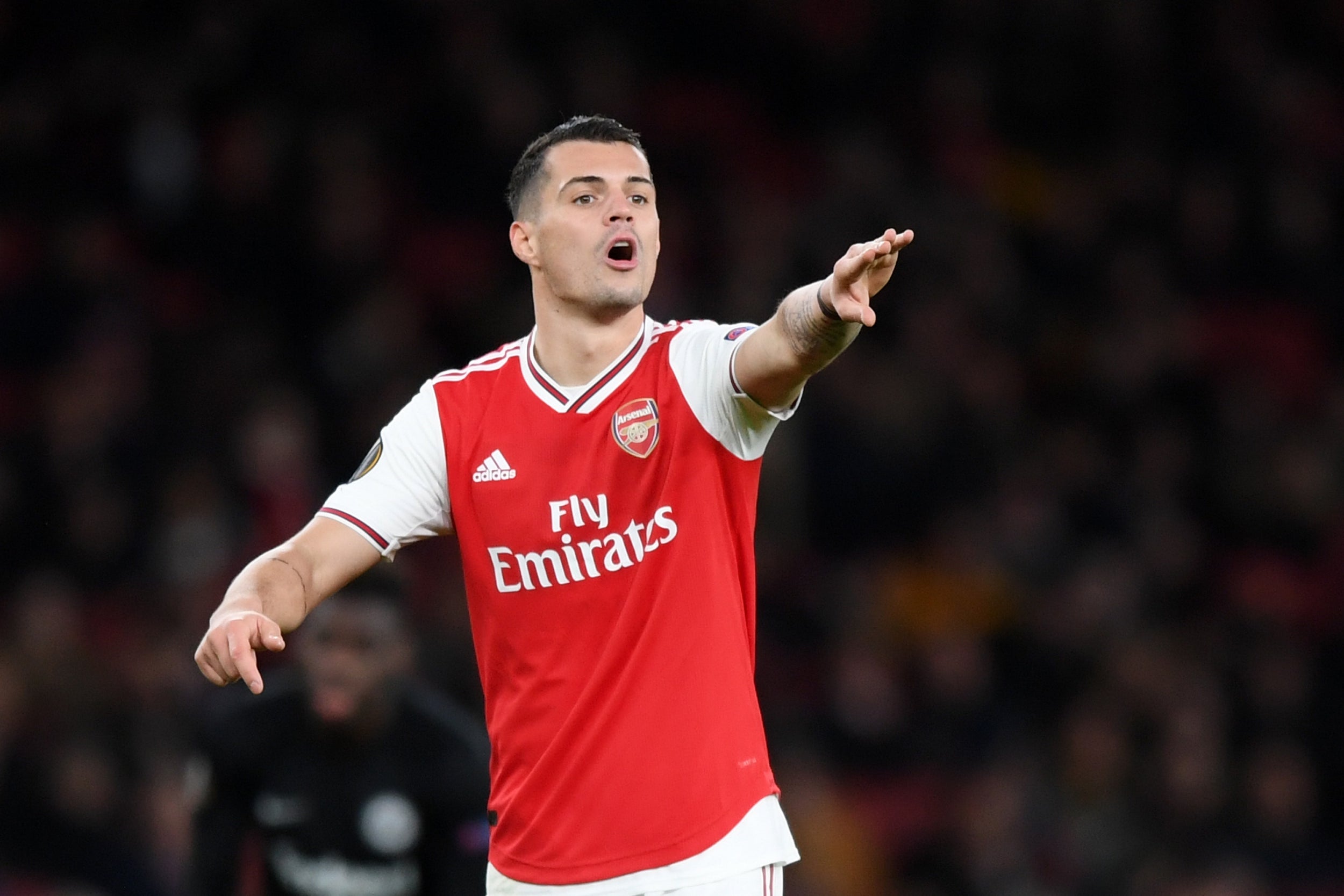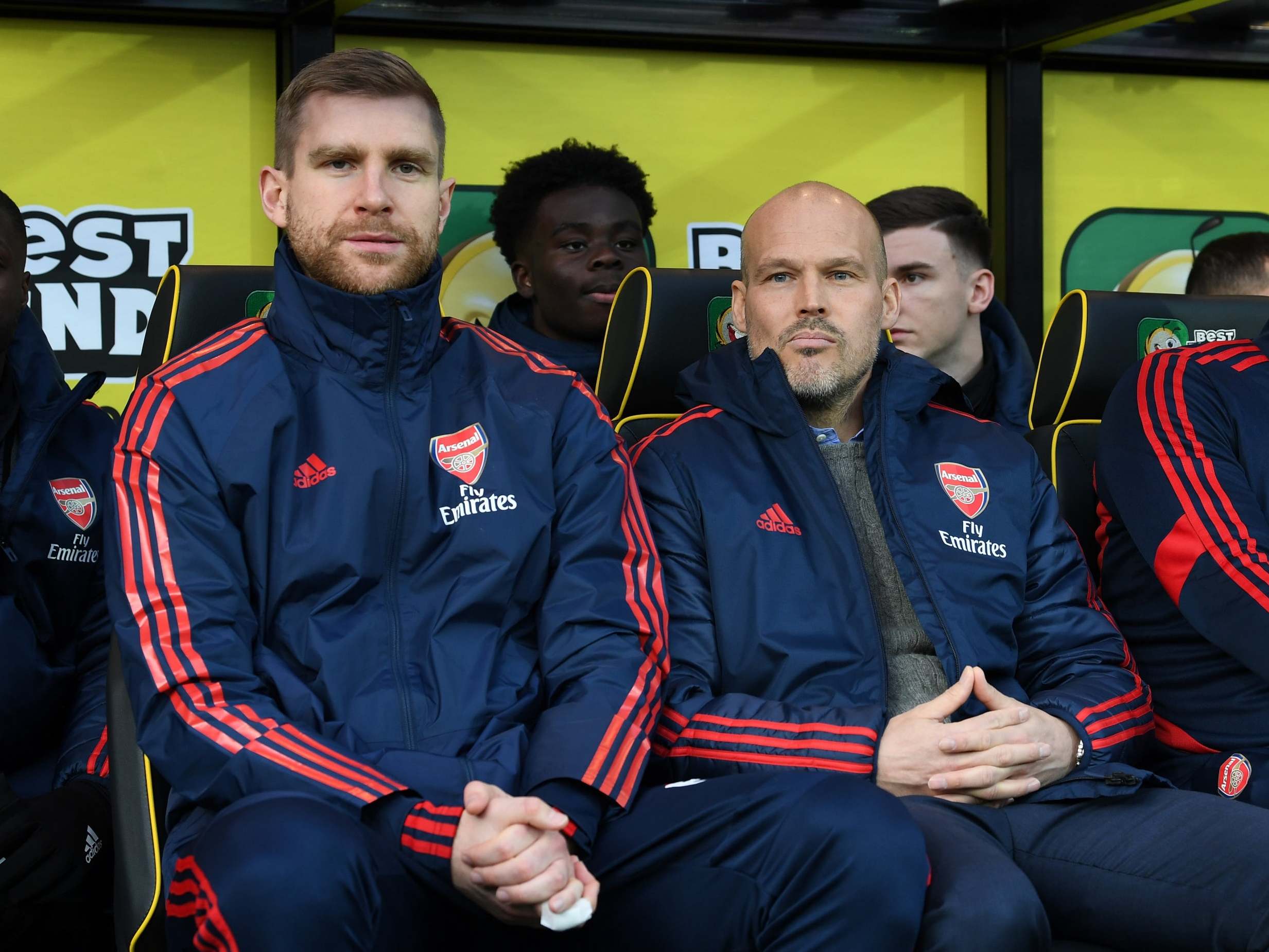Freddie Ljungberg shows an obvious difference in opinion to Unai Emery but old problems remain clear as day
Former under-23 coach demonstrated a clear early preference towards youth by leaving out Nicolas Pepe, but still found a way to challenge the club’s big stars in a way Emery failed to

During Freddie Ljungberg’s tenure as Arsenal’s under-23 coach last season he was able to watch every first-team match. In that time, he formed opinions on the style of play and the individuals. Some good, some bad and all now influencing how he is approaching his duties as interim head coach.
How much of that will be relevant depends entirely on how long he will be in this current position. The search for a new manager is underway and the shortlist is more or less what was put together before Unai Emery was chosen prior to the 2018/19 season, plus two front-runners in Massimiliano Allegri and Brendan Rodgers. Recruitment could take weeks, even months, as those in charge look to ensure they do not make the same mistake twice.
Amid this uncertainty and given Ljunberg’s lack of preparation time – he took full control of one training session before Sunday’s 2-2 draw with Norwich and will have one-and-a-half before Brighton visit the Emirates on Thursday – there is only so much he can do. Perhaps, then, it is only natural he has chosen to surround himself with those he trusts.
Off the field, one of those is Per Mertesacker, and the German’s presence in the away dugout at Carrow Road was more purposeful than just a bit of former-player PR. As academy manager, it was he who instigated Ljungberg’s return to the club and put him in charge of bringing through the next generation. As well as an ally by his side, there were followers in the ranks.
Joe Willock (20 years of age), Bukayo Saka and Gabriel Martinelli (both 18) are three examples of bright sparks in a gloomy few months for the Gunners. All three have spent enough time with their new manager when he was helping them develop the tools to make the step up to first-team football. They know what to expect of him and what he expected of them on Sunday.
For Willock making his fifth start of the season and regarded as the most exciting of the lot – certainly according to those in the know around the club – he was the one to connect midfield and attack, as he had done throughout the age-groups. But for a Norwich body he would have opened the scoring on five minutes
Both Saka and Martinelli were limited to cameo appearances, the latter only coming onto the pitch in the 89th minute but still able to craft a chance that almost led to a stoppage-time winner. Both were brought on ahead of Nicolas Pepe who remained on the bench as a £72m unused sub.
What does it say of Pepe that not even his club-record price tag would weigh heavy on the mind of a manager two days into his tenure and desperate for a win? Or rather, what does it say of a manager who thought nothing of an established forward when he made his first attacking substitution (Saka) with 30 minutes to play and a match to win? A lot, and not much of it flattering towards the Ivorian.
“Pepe’s a very good player," stated Ljungberg when asked about the summer acquisition. "But I try to go off what I see in training and what’s being done every day, and that’s how I judge.”
Remember, this is not a manager who has come in cold. Ljungberg was a prominent member of Emery’s backroom staff since the summer. He knows there are problems and, while he might not know the solutions just yet, he certainly knows where they lie. Only now does he have the power to fix them. Even if he had only been in the big chair for the life-cycle of a housefly, here was a player in Pepe who had not done enough to earn a spot in his first XI.
That works both ways, too, and it was hard not to conclude a difference of opinion in Emery's management group given Ljungberg's use of two of the more engimatic members of the squad. Mesut Ozil began on the wing as part of the front three while Granit Xhaka made his first Premier League start since his October 27.

Of course, one of Emery’s final acts was to bring Xhaka back in for Thursday’s Europa League match against Eintracht Frankfurt a month after the Swiss international's stoush with his own fans at the Emirates. This was by no means a vintage performance or his domestic return, but the Swiss midfielder was able to regain possession nine times - more than any other player on the pitch - while showing some welcome positional restraint.
Similarly, Ozil was more efficient, moving from one wing to another in pursuit of space and using that freedom to put on four chances. Maybe it’s too cute a point to assume a creator would thrive under a manager who was equally attack-minded in his playing days. But he would certainly be more inclined to let him off the leash.
But around these points of trust in youth, a challenge to his stars and a blank slate for others still remain the issues of old.
Just as it was under Emery, Arsenal conceded a host of chances. Though they were not out-shot, 15 plays 16 is not exactly a welcome scoreline when playing a team in 19th when you’ve got ambitions for the top four.
Along with difficulties in transitions, the air of desperation when they are asked to do any defending is still prevalent. And while Ljungberg’s assertion that more possession will keep their opponents at bay, how much more than the 60 per cent they had on Sunday do they need to avoid being exposed? Then again, maybe the pursuit of total possession is more achievable than discovering a workable defensive solution among Shkodran Mustafi, David Luiz and Sokratis.
“I was proud and honoured to be allowed to stand there on the touchline and lead this great club,” beamed Ljungberg, and why wouldn’t someone responsible for some of Arsenal’s great successes be honoured to be given the chance to help return them to those glory days.

But beyond the romanticism of the appointment, the changes required are so drastic and the malaise so ingrained that time and certainty are two commodities that must be afforded to any new manager looking to make a real difference Right now, neither are available to Ljungberg.
Unfortunately for the Swede, Manchester United’s travails under Ole Gunnar Solksjaer showcase how easily even the most loved ex-player can turn villain. Another case study in the perils of going with heart over head.
That’s not to say just because one cult hero is failing another will. But if the 42-year old is to effectively instigate a relaunch of their Champions League ambitions, he will need clarity on the parameters of his role regarding time frames and responsibilities – whether he has the power to buy or sell players in January, for instance – especially if the club are to continue their search for a long-term successor while he is in situ. Both parties will need to be moving together in whatever direction is decided upon.
Just as it will be between Ljungberg and the players, trust and transparency between him and the club is crucial to any turnaround in fortunes.
Join our commenting forum
Join thought-provoking conversations, follow other Independent readers and see their replies
Comments